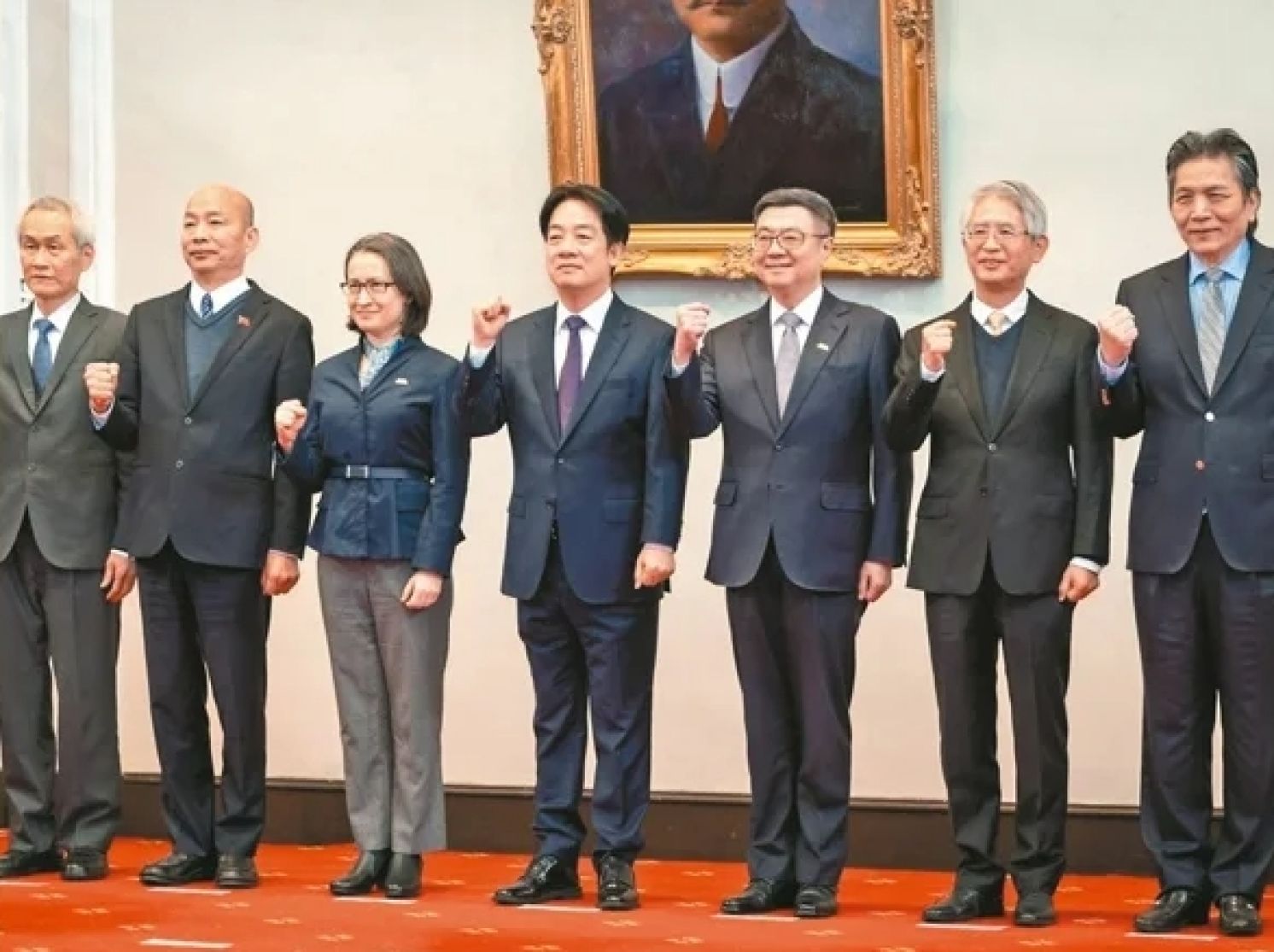
President Lai Should Facilitate Cross-Partisan Dialogue, Not Inter-Yuan Coordination
United Daily News Editorial, February 12, 2025
President Lai Ching-te convened a historic first "inter-Yuan coordination" meeting, a significant gesture that proved ultimately futile. While President Lai enjoys ceremonial admiration as the head of state, his efforts to resolve the conflict between the executive and legislative branches over the national budget and political tension from large-scale recalls have been ineffective. The meeting, filled with ceremonial flair, ultimately served as a symbolic gesture with no real impact, especially with the judiciary and Control Yuan being represented by deputies, exposing the incomplete nature of the Lai administration.
The inter-Yuan coordination was primarily about the tensions between the Executive Yuan and the Legislative Yuan, with the judicial, examination and Control Yuan branches largely sidelined as mere bystanders. The absence of appointed constitutional court judges and the hospitalization of President Chen Chu of the Control Yuan further diminished the meeting's credibility. The so-called "coordination" ended up as a show of force with little to no substance, failing to underscore President Lai’s authority.
Speaker Han Kuo-yu of the Legislative Yuan, while attending as a representative, could only make general statements and could not promise any concrete actions on behalf of party legislators. His requests for President Lai to stop pushing the national budget for review and cease the large-scale recalls campaign were reasonable and reflected public sentiment opposing endless political infighting.
In contrast, President Lai's use of Buddhist terminology, "Bodhisattva fears the cause, while beings fear the result," to address Han seemed more like an evasion of the issue. President Lai suggested that if the budget issue was resolved, the recall movement would naturally subside. This argument oversimplifies the situation, undermining the constitutional responsibility of the legislature and exposing President Lai’s autocratic tendencies. Essentially, President Lai implied the opposition should yield first, or else supporters of his party would not relent.
President Lai's reference to Buddhist teachings may sound novel, but it also appeared out of place in a political context. His invocation of "Bodhisattva" seemed to elevate him to a higher status, claiming the need to address the cause before resolving the effect. However, his understanding of the "cause" appears misguided. While budget cuts may have triggered the recall movement, the root issues lie deeper: a refusal by certain political parties to accept oversight, budget waste, and political misuse of state resources.
President Lai’s "inter-Yuan coordination" aimed to force the legislature to reverse its budget cuts, but the grand spectacle, while satisfying his need for authority, achieved nothing. The problem lies not between the five branches but in the broader political clash between ruling and opposition parties in the legislature. President Lai’s oversimplification of the issue blurred the true nature of the conflict.
In essence, Mr. Lai's failure to balance his roles as president and party chairman is the primary reason for his inability to manage national affairs impartially. While he often relies on presidential authority to deal with the opposition, President Lai also permits his party to exploit state resources in political battles, perpetuating the cycle of division. When he speaks of "Bodhisattva fears the cause," does President Lai really believe he has no responsibility for the budget or the recall movement? Does he truly want to ease the public’s anxiety over the political infighting?
The "inter-Yuan coordination" show failed to inspire the public. If he truly sees himself as a Bodhisattva, then Mr. Lai must reconcile his roles as both president and chairman to find a real solution.
From: https://udn.com/news/story/7338/8542137
〈Back to Taiwan Weekly Newsletter〉